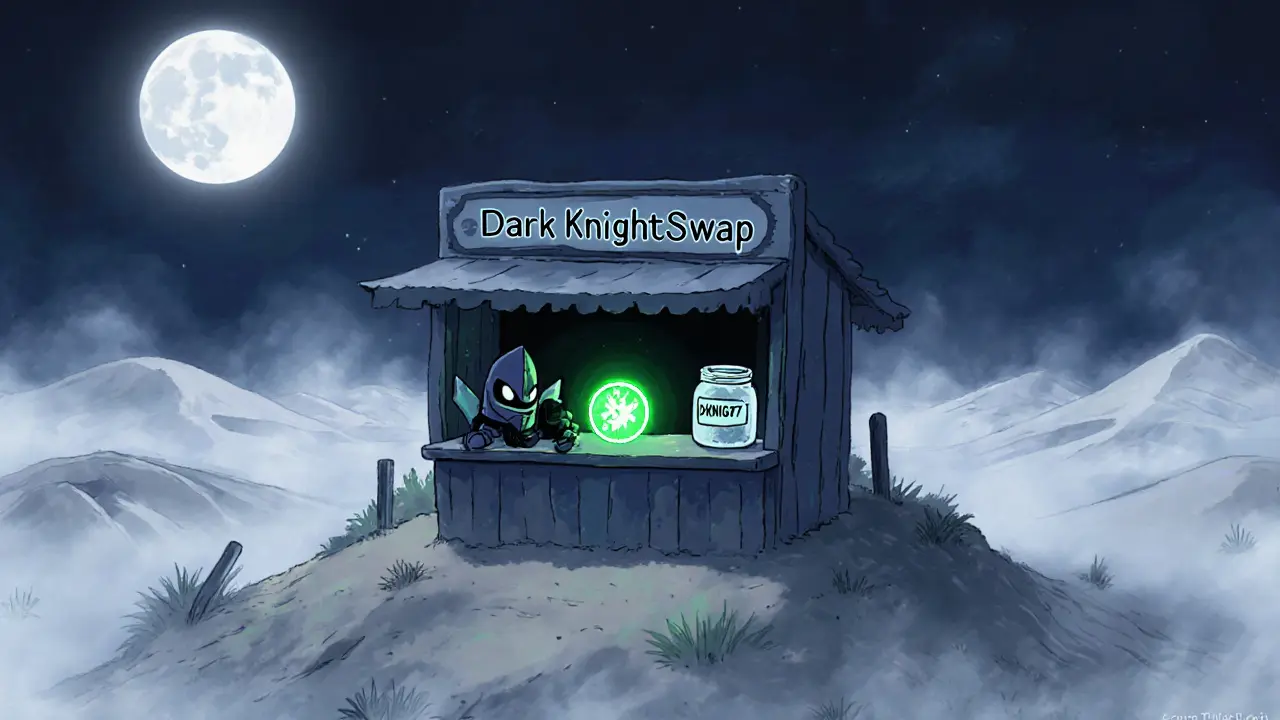Dark Knightswap: Your Guide to the DEX, Tokens and Airdrops
When you hear Dark Knightswap, a community‑run decentralized exchange (DEX) on Binance Smart Chain that aims for near‑zero fees, fast swaps and a strong focus on user‑driven token launches. It’s also called DKS, and it lets anyone trade without a middleman. A decentralized exchange runs on blockchain‑native smart contracts, so every trade settles on‑chain and users keep full custody of their assets. This removes traditional broker commissions, but it also pushes the responsibility for gas cost management and contract risk onto traders. Dark Knightswap integrates a robust liquidity mining program that rewards users for depositing token pairs into its pools. By allocating a portion of swap fees and native reward tokens to liquidity providers, the platform deepens its order book, reduces slippage and keeps price impact low even for larger trades. The DEX also supports cross‑chain bridging, allowing assets from Ethereum, Polygon and other networks to flow into its BSC‑based pools, which expands the available liquidity base. In short, Dark Knightswap blends the openness of DEX technology with community incentives, creating a self‑reinforcing loop of deeper liquidity and better trading conditions.
Tokens, Airdrops and Security Measures
The next piece of the puzzle is the token airdrop mechanism that DKS uses to launch new projects and reward early participants. By distributing free tokens to users who have staked liquidity or completed certain trading volumes, the platform sparks excitement and quickly seeds demand for the new asset. Most airdrops come with a lock‑up period, so traders must balance immediate returns against potential price swings once the tokens become tradable. Because airdrops are prime targets for scammers, Dark Knightswap backs each distribution with thorough smart contract audits. Independent audit firms scrutinize the contract code, verify that tokenomics match the whitepaper, and confirm there are no hidden withdrawal functions that could be abused. These audits act as a trust stamp, encouraging more users to participate in the airdrop and, by extension, to add liquidity.
Beyond incentives, Dark Knightswap’s DeFi security framework combines multisig governance, bug‑bounty programs and real‑time monitoring of large swaps. Multisig wallets require several approved signatures before any protocol upgrade or fee change can be executed, dramatically reducing the risk of a single rogue admin pulling the rug. The bug‑bounty initiative pays out rewards to developers who discover vulnerabilities, turning the wider community into an extra layer of defense. Additionally, the platform employs on‑chain analytics to flag abnormal trade patterns, helping to prevent flash‑loan attacks before they cause damage. All these measures work together, allowing the DEX to stay open, permissionless, and secure at the same time. Below you’ll find a curated collection of articles that walk you through each of these components—step‑by‑step guides to join the liquidity mining pools, safe‑handed procedures for claiming a DKS airdrop, and deep dives into the audit reports that keep the protocol trustworthy. Explore the list and you’ll get practical, actionable insight to navigate Dark Knightswap with confidence.
Dark KnightSwap Review: Is This Crypto Exchange Worth Your Money?
A detailed review of Dark KnightSwap, covering liquidity, security, user experience, and how it stacks up against major crypto exchanges.



